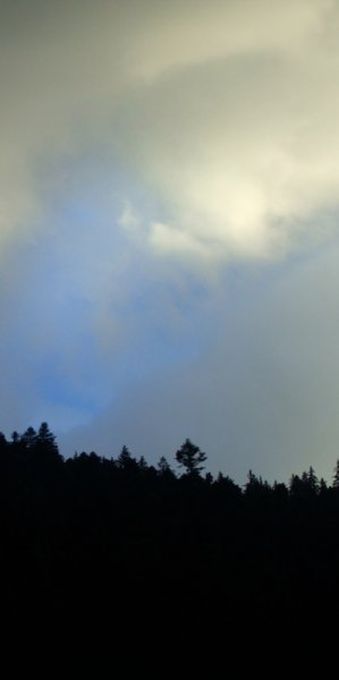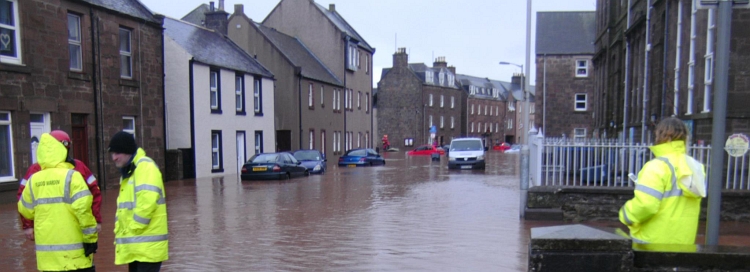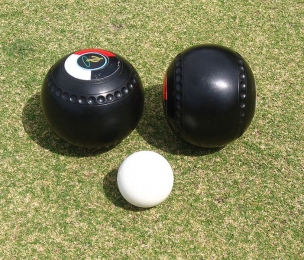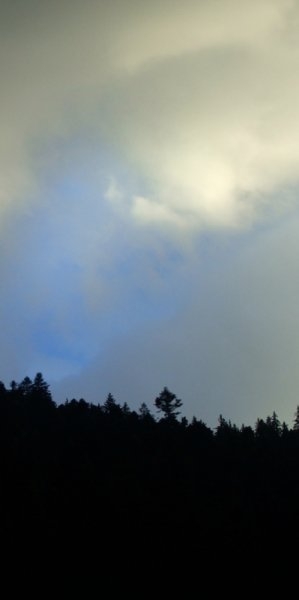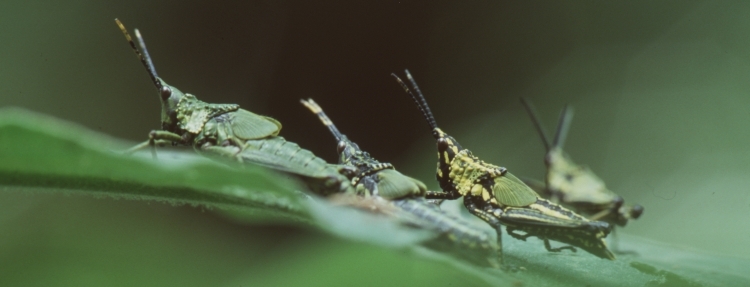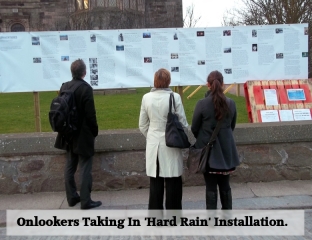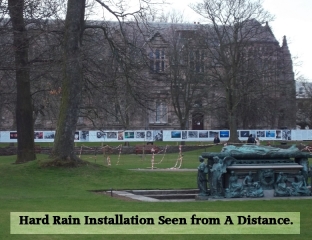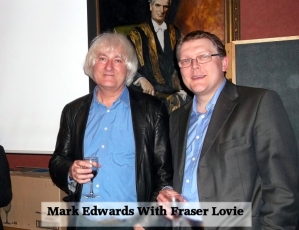By Suzanne Kelly.
Some 100 people of all ages and backgrounds packed an Aberdeen University lecture room on 22nd March; most of us were not entirely sure what to expect.
Mark Edwards – internationally known photographer, writer and witness to 40 years of global problems was there to deliver his ‘Hard Rain’ lecture and still photography presentation.
By the time he had finished it was clear that each person present had taken away food for thought on a host of global issues, however much or little they had known before they arrived.
Mark made a brief introduction explaining the Hard Rain Project’s genesis. At the time of the first moonwalk in 1969, Mark was traveling in the Sahara desert’s unforgiving landscape, got lost, and was subsequently rescued by a nomadic tribe. They offered him food, shelter and a fire to sit by, and then they produced a radio. Bob Dylan’s ‘A Hard Rain’s a Gonna Fall’ came out of it; a track inspired by the Bay of Pigs Cuban Missile Crisis.
Edwards considered his personal situation, the simple nomadic lifestyle, and the moonwalk and out of these events grew his idea of illustrating each line of this moving, evocative song. Some 40 years on, the Hard Rain project was touring the world. It features still photography taken from all quarters of our world, and illustrates the issues, which we have to face urgently. Edwards took his Aberdeen audience:
“…on a journey through the past to a future which is ours to change.”
The photographs are as beautiful and as diverse a collection as you could possibly imagine – Edwards has captured virtually all aspects of humanity and of the earth. These photographs and Mark both bear witness to the increasingly urgent issues we must solve now: famine, destruction of habitats, human suffering, war, climate change, waste, disrespect and misuse of people, animals and the planet. The things Mark has seen in his travels have not led him to despair; he retains faith in human initiative and human spirit, which he sees in the shantytown inhabitants’ resourcefulness.
As to the photographs: there is a bulldozer in the Amazon cutting a scar through the lush jungle; there is a sea of ghostly, dead tree stumps in an arid wasteland; there are dead and dying women and children from around the world. I am haunted by a photo of an oil-covered bird taken in Brazil, which is accompanied by the line from Hard Rain ‘I’ve been out in front of a dozen dead oceans’.
This photo presumably was taken years ago, but it could have been the recent Gulf of Mexico oil disaster. (You have to ask yourself why one oil disaster was not enough to ensure we never let it happen again).
But I am most haunted by (as were several of the students I spoke to including Deepu Augustine and Rita Lwanga) of a poignant image of a newborn baby lying on its side, small hands and feet visible, wrapped in a hooded garment,
dead. It was lying in a shallow, womb-like grave about to be buried. The number of children who starve to death is legion.
As Mark says when addressing all the various issues:
“Perhaps our greatest mistake is taking our easy lifestyles for granted.”
Edwards explains that “we broke the first law of nature” – for instance how the death of a leaf and its natural decomposition create fertile soil on which new life will grow. The problem is that we have created a host of chemicals, which do not break down. He does not bombard us with numbers and statistics, but those he does use are unforgettable. In discussing our chemical dependence and proliferation of chemicals throughout the food chain globally, he says that any pregnant woman anywhere in the world today will have somewhere between 8 to 17 kinds of pesticides in the placenta.
Mark describes himself as a witness; he does not have all the answers. But he will tell you that we urgently need to increase education around the world, end child labour (which is nothing short of slavery: buyers of cheap imported goods and clothing please do take note), pay fair prices for crops, encourage family planning, and end extreme poverty. Another statistic he has hit us with: the GDP of the world’s 48 poorest countries is equal to the wealth of the world’s three richest people.
A series of photos taken in Haiti show the human impulse to slip away from rational thinking and regress to superstition (a ‘voodoo’ ceremony to pray for long-overdue rain is depicted), and later work shows a flock of brightly-clad Haitian school children. Edwards then makes interesting comparisons between the 1930s American Dustbowl draught and Ethiopia’s similar situation today. He compares Industrial age London’s shantytowns to today’s third world shantytowns, they both were born of similar circumstances and had similar problems and potentials.
“The past is not over and the future has happened many times”
– or put another way – those who do not know the lessons of the past are doomed to repeat its mistakes and tragedies.
His bleak, depressing photos of urban sprawl were based in Mexico City; but if we are not careful the same thing can easily happen in Aberdeenshire on a smaller scale.
The difference in the quantity of goods the Americans have is staggering and it does not make them any happier
We are, after all, getting rid of acre upon acre of (supposedly protected) green belt land to build hundreds of identikit houses, a 21,000 seat stadium where we currently have important wildlife and rare plants, and a car park/mall is planned for our only city centre green sink and beauty spot – Union Terrace Gardens.
Rather than increasing public transport, we plan to cut a highway through our countryside with the AWPR. And we are going to shoot (sorry, cull) the Tullos Hill Roe Deer, as our elected officials have deemed that building fences or protecting saplings with plastic are more expensive options). Mark makes a remark that some politicians are:
“…defending political positions they know are no longer appropriate…”
I think I do not need to look any further than Aberdeen City Council for an example of Mark’s assertion. I get the feeling that 99% of Edward’s audience is receptive and probably actively concerned for our environment – I find myself wishing we could get the local Council to see ‘Hard Rain’.
Edwards shows us a family in Bhutan; they are outside their home and have all of their, not very many, possessions spread around them. Next we switch to an American family of four – again in front of their home with all of their goods. The difference in the quantity of goods the Americans have is staggering and it does not make them any happier: Bhutan is, in fact, the country with the highest percentage of happy and satisfied people on earth.
Edward’s talk is part of the Aberdeen University Students’ Association Climate Change Projects.
Jamie Peters is the Climate Change Project Co-ordinator and he advised me that the Climate Change project has been packed full of events this past week including; tree planting, cookery demonstrations, gardening, meetings and discussions. Reusable bottles and bags were distributed as well as bookmarks with tips on energy saving and recycling. The Climate Change Project at Aberdeen University:
“aims to improve life around the campus, provide something fun for students to get involved in and at the same time save 1,000 tonnes of CO2.”
Fraser Lovie, a policy adviser at the University, congratulated the Climate Change Project for bringing Mark Edwards and his exhibition to Aberdeen and welcomed Mark’s hints that a new touring exhibition, based on Hard Rain, is in development, that will support the behavior change agenda in Universities and Colleges.
STOP PRESS: At the time of writing, it is uncertain whether funding will be found to keep the Climate Change Project going: I certainly hope they will continue their work.
After a glass or two of wine and a few words with Mark Edwards and others (he is affable and keen to talk), I made my way home. Another Bob Dylan song came into my head – ‘The Times They Are A Changing’;
“… if your time to you is worth saving, you’d better start swimming or you’ll sink like a stone, for the times they are a changing’.”
Change has never happened faster in human history than it is happening now. But exactly what are we changing our world into?
Regent Walk is the scene of the Hard Rain Project outdoor exhibition, which accompanied this lecture; it will be up for a month. I urge you – go and see it.
SOME FOOD FOR THOUGHT:
Quotations from the Hard Rain Project Lecture
* “In the next 24 hours deforestation will outweigh the carbon footprint of 8 million people”
* “If forests are the lungs of the world, we have had one lung removed”
* “All humanity is in trouble; time is the enemy; indifference is the enemy”
* “We have Stone-Age impulses, Medieval beliefs, and God-like technology”
* “There is no ‘them and us’”
Q&A from the Hard Rain Website:
“Mark has been traveling and taking photographs in over 150 countries in the last 40 years. He first decided to illustrate the global environmental crisis in 1969, and Hard Rain really began to take shape as a live presentation in 2000. The DVD has been in development for about a year, since interest in the presentation has exploded.
“How many cities/countries has Hard Rain been seen in?
“The exhibition has been seen in over 50 cities, with a tour of India immediately following Copenhagen. The presentation, on which the DVD is based, has been seen in hundreds of venues on every continent.
“How has Dylan lent his support?
“Dylan and his label, Columbia Records, have been extremely supportive of Hard Rain right from its public launch as an exhibition at the Eden Project in 2006. They have also been very supportive of Hard Rain by allowing us to use the lyrics in the exhibitions.
“This year, the Royal Photographic Society recognized Mark Edwards and Bob Dylan by presenting them with the Terence Donovan Award for their achievement with the Hard Rain Project.”
